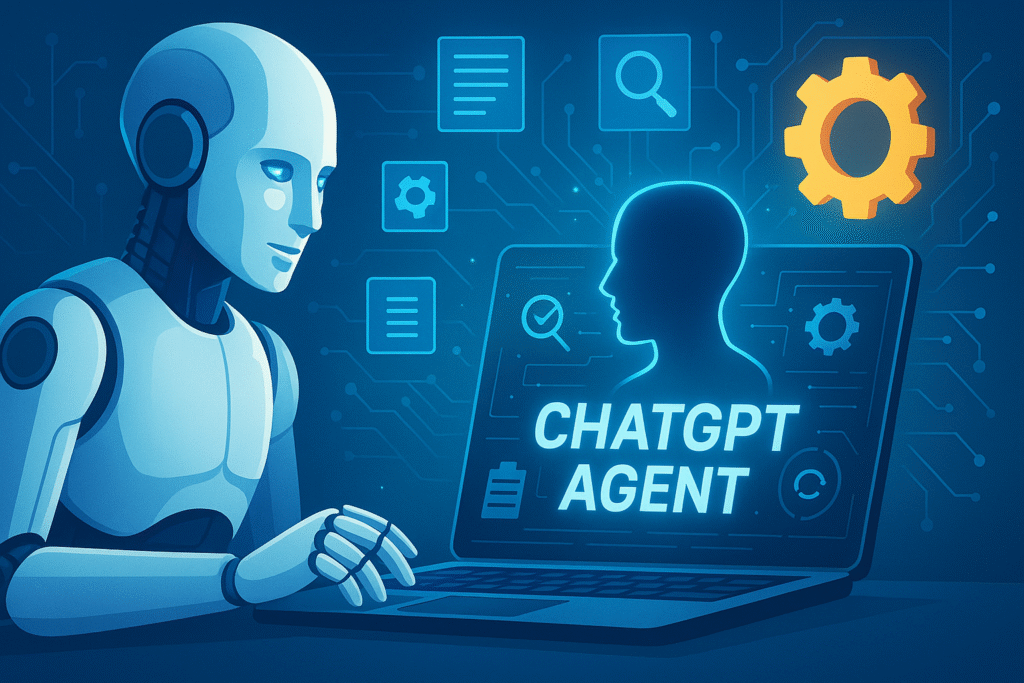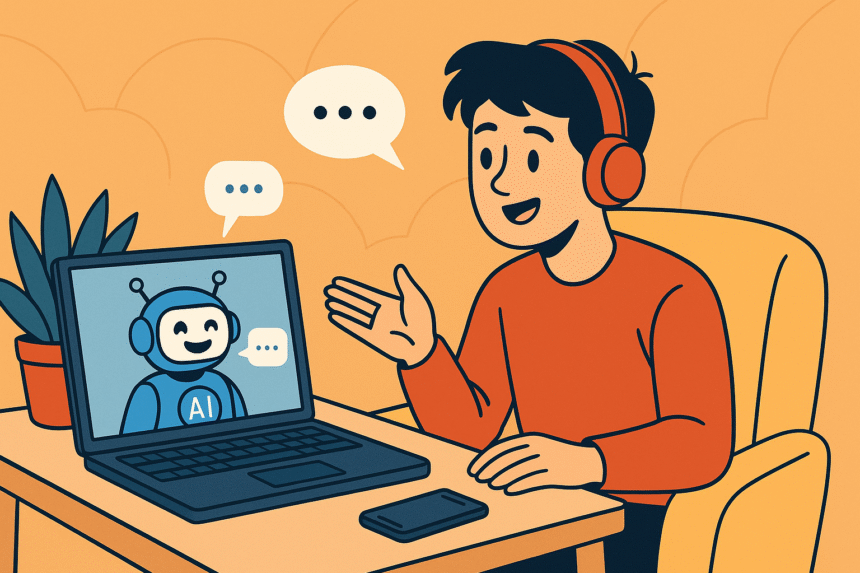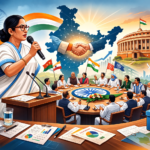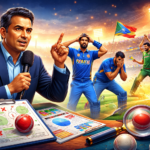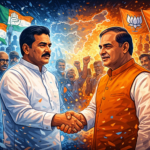88% of young Indians now use AI tools like ChatGPT for emotional support. Here’s a witty explainer of why they rely on bots more than humans.
Imagine this: You’re upset, so you call your best friend. They’re busy. You try your sibling—they roll their eyes. Finally, you type: “Hey ChatGPT, I’m sad.” 🤖
And suddenly, boom—your new therapist is an AI bot. No judgment, no interruptions, no “Beta, sab thik ho jayega” clichés.
Welcome to 2025, where a new survey says 88% of young Indians rely on AI for emotional support. Basically, the generation that once Googled “How to be happy” is now straight-up asking bots to fix their hearts.
What the Survey Found
- 88% of youth (13–35 years) said they turn to AI tools for comfort, stress relief, or emotional support.
- ChatGPT was the most used platform, more than Gemini, Character.AI, or smaller AI apps.
- 52% of young women said they confide their personal thoughts to AI—nearly double the number of men.
- Even in smaller towns, 43% of youngsters admitted they chat with AI when they feel low.
- At the same time, 67% worry this could make them more isolated, and 58% fear privacy issues.
So basically, youth love AI—but don’t fully trust it either. Kind of like that one flaky friend you keep hanging out with.
Why Are Youth Turning to AI for Comfort?
1. 24/7 Availability
AI never says “busy rn.” It’s there at 2 AM when real friends are snoring.
2. Zero Drama
AI doesn’t gossip, ghost, or judge. Humans can’t say the same.
3. Anonymity Feels Safer
Teens say it feels easier to pour their hearts out to a bot than risk human side-eye.
4. Rural and Small-Town Gaps
In smaller towns where mental health conversations are still taboo, AI becomes the first “listener.”
Experts Are Concerned
Psychologists warn this trend isn’t as rosy as it looks. Some teens in cities have started forming emotional or romantic bonds with AI companions. That’s like falling in love with Siri, but scarier.
Doctors say: depending too much on bots could weaken real-life emotional intelligence. AI can mimic empathy but can’t feel it. If youth only talk to machines, they may struggle to handle messy human emotions later.
The Double-Edged Sword
AI companions have clear upsides:
- They reduce loneliness.
- They offer a safe, judgment-free zone.
- They make mental health feel more accessible.
But here’s the flip side:
- Conversations may be shallow and repetitive.
- Bots cannot provide professional therapy.
- Too much reliance can blur reality vs simulation.
It’s like eating Maggi every night—it’s fast, comforting, but not a long-term diet plan.
Youth Voices: Why They Prefer AI
Many young Indians say AI feels like a “friend who always listens.”
- No interruptions.
- No shaming.
- No “Have you tried yoga?” replies.
For women especially, AI feels safer than confiding in random strangers or even relatives who may judge them.
Some call it “therapy without fear.” Others admit it’s simply less awkward to text a bot than a human.
But Can AI Really Replace Humans?
Not quite.
Bots can:
- Listen.
- Respond politely.
- Offer perspective.
Bots cannot:
- Hug you.
- Share a pizza.
- Truly understand your pain.
AI is a tool, not a soulmate. It helps in the moment but can’t be the foundation of your emotional life.
Why This Matters for India
India has the world’s largest youth population. If a majority are turning to AI for support, it reveals two things:
- Mental health services are lacking. Therapy is expensive, and stigma is real.
- AI is filling a gap humans and systems failed to.
But it also raises questions: what happens to real-world relationships if youth prefer bots? Will empathy become outsourced? Will loneliness deepen despite constant “digital companionship”?
Humor in Reality
- A boy tells his mom: “Don’t worry, Maa. I’ve found someone to talk to.”
Mom smiles: “Beta, who is she?”
Boy: “ChatGPT.”
Mom faints. - A girl cries after breakup. Her friend: “Let’s go out.”
She replies: “No thanks, my AI already gave me closure.” - Exam 2030:
Q: “Define a best friend.”
Student: “The one with unlimited tokens and zero judgment.”
Nokjhok Verdict
AI as an emotional support system is both genius and risky. It’s like a digital hug—warm, instant, but hollow if you live on it forever.
For India’s youth, bots may provide midnight comfort. But real healing comes from balancing AI chats with human hugs, conversations, and yes—awkward silences too.
So, let AI be your friendly cushion. But don’t replace your entire sofa set with it.
Have you ever poured your heart out to an AI bot? Did it feel like therapy or just tech support with extra emojis? Share your take in the comments, and tag that one friend who secretly has a “bot bestie.”
👉 Related Nokjhok Article: “Meet the ChatGPT Agent Tool – The Butler of the Future Is Digital”
